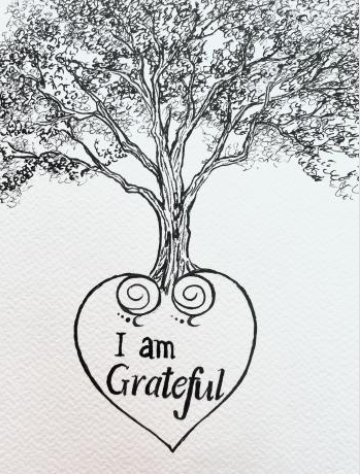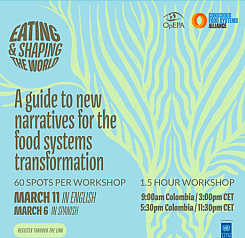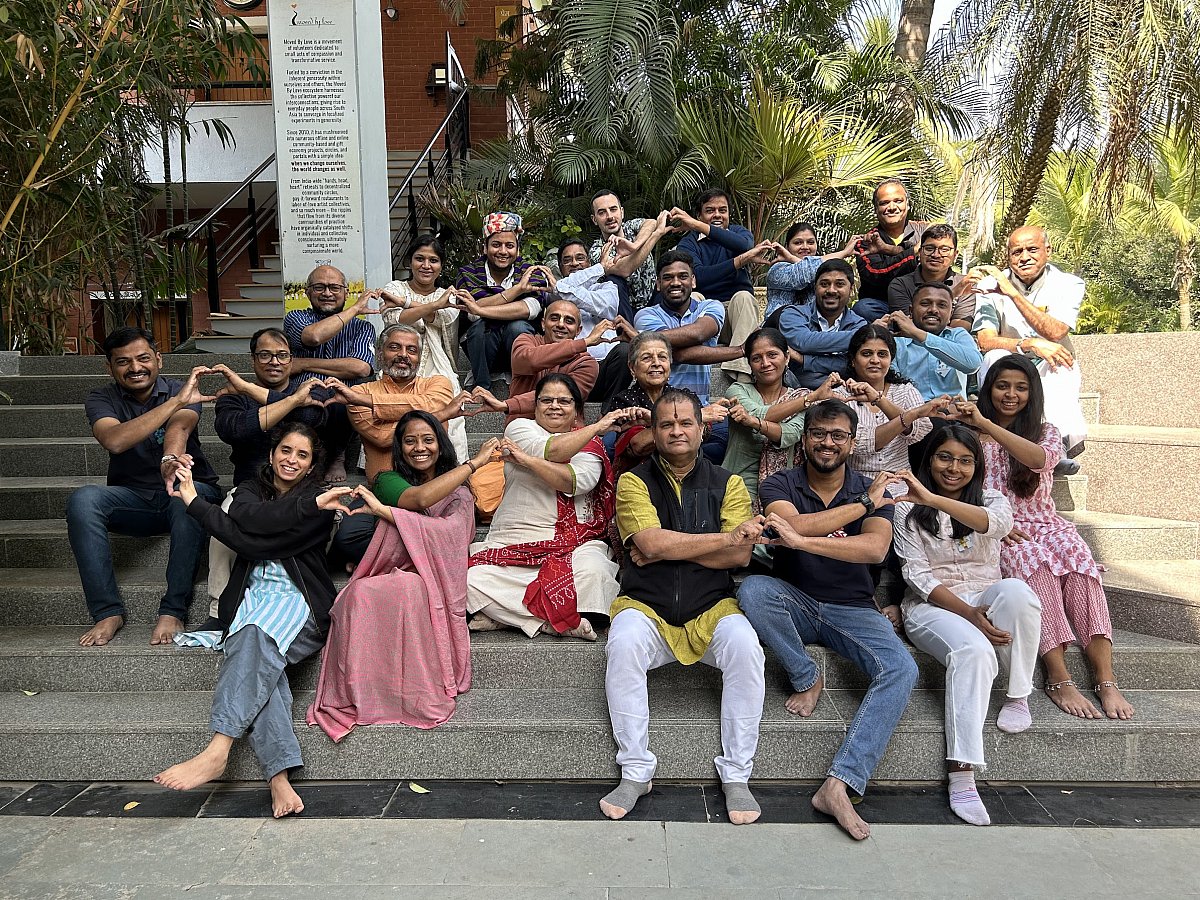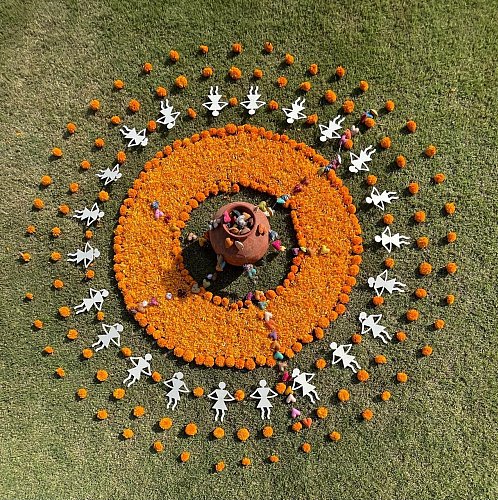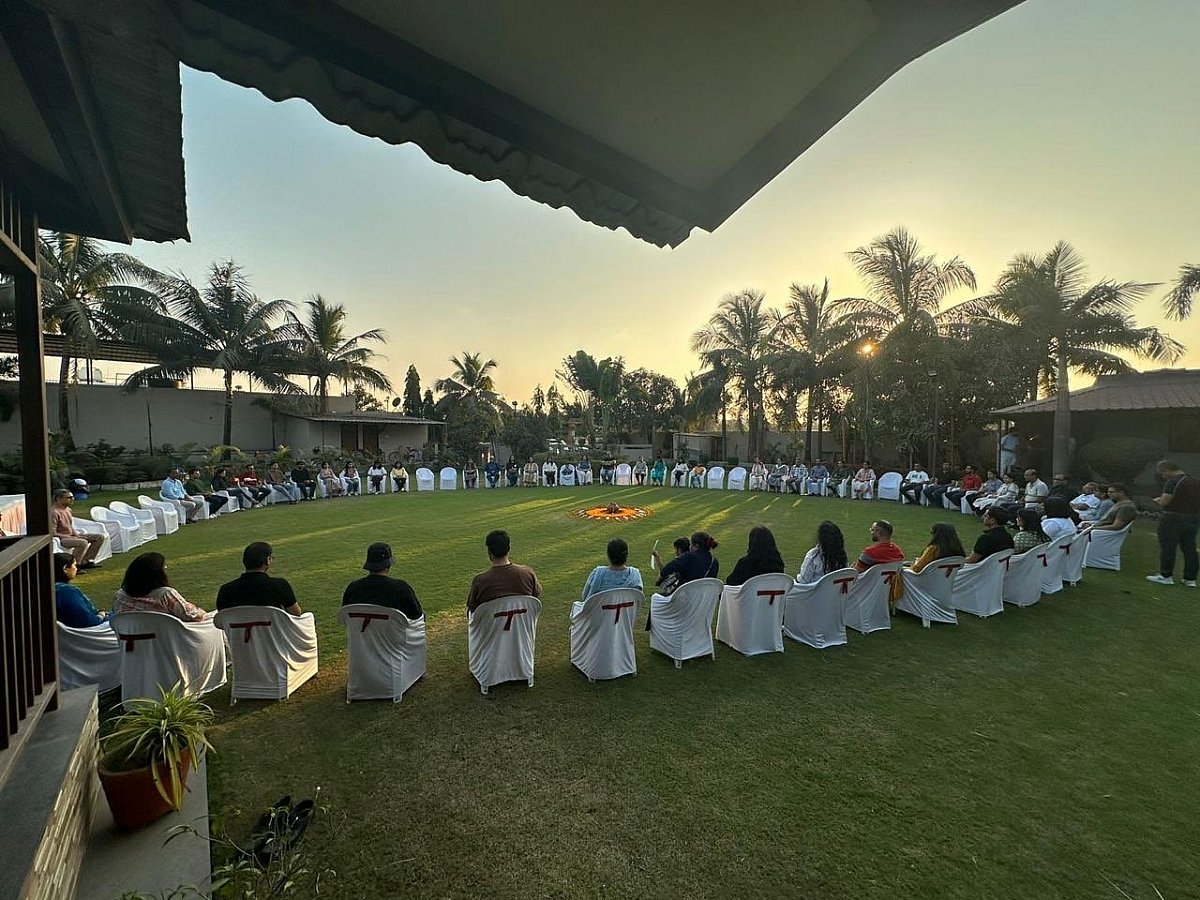|
|
|---|
|
Volunteer Artist Feature: Rupali Bhuva |
|
"Turning Wake": We Are Made of Ancient Songs |
|
A friend of ServiceSpace, Carmen Posada Monroy, has teamed up with Conscious Food Systems Alliance (CoFSA) on a guide for journalists, communicators, foodies, influencers, and anyone sharing information related to food, gastronomy, nutrition, and related topics. The guide offers an innovative way of telling the story of food systems to create new realities that transform our relationship with food.
|
|
|
|
This Startup Will Pick Up Your Hard-to-recycle Waste |
|
KarunaNews: He Lost 29 Years Of Memories But Kept Playing His Trombone |
|
At one of the most premiere business schools in India, IIM (Ranchi), they hosted a "Soul Carnival", with food, games and joy of being related. But with a twist. Here's more from their press release: However, what sets this year's Soul Carnival apart is reliance on the Trust Economy model – a radical yet resonant approach where transactions at stalls are not fixed by price tags but are left to the discretion and generosity of patrons; the birth of this revolutionary concept was inspired by ServiceSpace movement of kindness and generosity happening globally. For a deeper dive into various models, check out this article on spectrum of reciprocity (and many practical examples and experiments). |
|
Retreats and circles are in the air! In the very location of Gandhi 3.0 retreat, Drishti Foundation just hosted a retreat with various NGO founders, most of whom our foundation has been supporting for the last 30 years. Apart from sharing stories, some technical best practices around the increasingly complex landscape in India, and building synergy among each other -- there were also the "Moved By Love" ripples of hand-made name tags, rangoli mandalas, peace walk, interfaith prayers and so much more! Here's the retreat participants building those trademark hearts with each other, two days ago: Speaking of rangolis and mandalas, here was a photo shared on a volunteer thread of another gathering that Parag, Anamika, N2 and many others from our Surat volunteers hosted:
I am currently 22 years old and have been working for the past 7 years. I started as a delivery boy and have now worked my way up to a staff position. It has been an incredible journey, and I have enjoyed every moment of it. Currently, I am preparing for my 12th grade exams which will end on March 6th. My aspiration is to become an engineer one day. Thank you, all, for all the open-source inspiration -- and the murmurations we took home on Monday! :) |
|
Oregon Zoo Releases Endangered Condors Back To Nature In California The soft release program at Oregon Zoo has helped restore the population of condors to about 500 in California. |
|
Some sweet stories from our KindSpring community this week. :)
|
